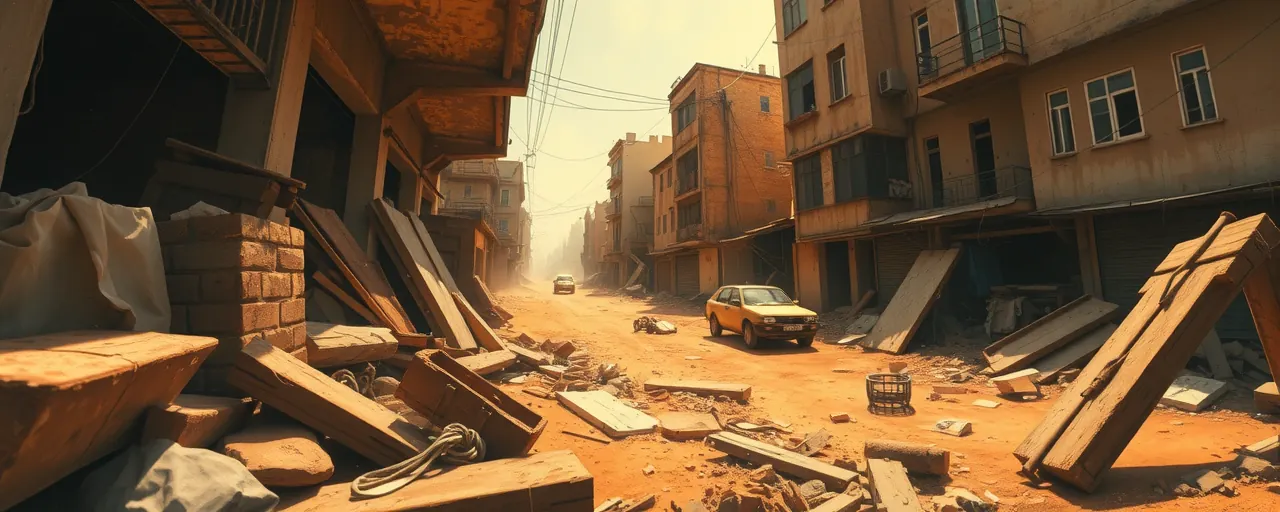A Courtroom in The Hague, a Crisis in Gaza
On April 30, 2025, the International Court of Justice in The Hague opened a public hearing to address a pressing question: what are Israel’s legal obligations to facilitate humanitarian aid in Gaza and the West Bank? The session, prompted by a UN General Assembly request, comes as Gaza faces catastrophic shortages of food, water, and medical supplies, with over 2 million residents caught in a worsening humanitarian disaster.
The United States, represented by the State Department’s Office of the Legal Adviser, took the floor to argue that the court’s involvement risks complicating peace efforts. It emphasized that Israel, as an occupying power, has the right to choose which organizations deliver aid, particularly amid concerns about groups like Hamas diverting resources. Yet, the hearing unfolded against a backdrop of global urgency, with aid agencies warning that Gaza’s humanitarian system is collapsing.
The stakes are tangible. Since March 2025, Israel has blocked all humanitarian and commercial supplies to Gaza, leaving 95% of aid organizations unable to operate effectively. Hospitals are overwhelmed, and famine conditions are spreading. The court’s advisory opinion, while not binding, could shape how the world responds to a crisis that has already claimed thousands of lives, including over 400 aid workers since October 2023.
The U.S. Stance and Global Divisions
At the hearing, U.S. officials focused on narrow legal points, rooted in the UN Charter’s division of roles between the Security Council and General Assembly. They argued that international law does not require Israel to work with specific agencies, like the UN Relief and Works Agency for Palestinian Refugees (UNRWA), especially if concerns about impartiality arise. The U.S. has pointed to allegations of Hamas infiltration within UNRWA, though independent probes, like the 2024 Colonna Report, found no systemic evidence to support such claims.
This position reflects a broader geopolitical divide. Many UN member states, particularly from the Global South, Europe, and the Arab world, have urged the court to clarify Israel’s duties under international law, emphasizing the need for unimpeded aid access. They argue that Israel’s restrictions, including new regulations limiting aid to precise caloric counts, politicize relief efforts and violate humanitarian principles. The U.S., joined by allies like Hungary, counters that such legal actions disrupt bilateral peace talks and unfairly target Israel.
The hearing also highlighted tensions over UNRWA’s role. Israel has banned the agency from operating in Gaza and the West Bank, citing alleged staff involvement in the October 2023 attacks. Yet, UNRWA remains the backbone of aid delivery, serving millions of Palestinian refugees. With only 0.66% of its 30,000 staff implicated in neutrality breaches from 2022 to 2024, defenders argue the agency’s track record outweighs the criticisms.
A Humanitarian System at Breaking Point
Beyond the courtroom, Gaza’s reality is grim. The closure of key border crossings, like Rafah and Erez, has stranded 9,000 pallets of aid outside the territory. Inside, aid convoys face looting, attacks, and a breakdown of order, with criminal gangs exploiting the chaos. Over 1,300 health workers have been killed since October 2023, and hospitals, running on dwindling fuel, are turning away patients. The UN and NGOs report arbitrary detentions of staff and direct targeting of facilities, further crippling relief efforts.
Historical parallels underscore the complexity. Aid delivery in conflict zones, from Syria to Yemen, has long grappled with political interference and security risks. In Gaza, Israel’s strict inspections and frequent policy shifts add layers of delay, while mistrust between authorities and aid groups hampers coordination. The result is a population on the edge, with malnutrition soaring and famine warnings growing louder.
Voices from the ground paint a stark picture. Aid workers describe navigating impossible choices: risk their lives to deliver supplies or suspend operations and leave civilians without support. The international community, while vocal about the crisis, struggles to translate concern into action, constrained by political divisions and the limits of legal frameworks like the ICJ’s.
The Broader Legal and Political Context
The ICJ’s role in conflicts has grown in recent years, with cases addressing genocide, occupation, and humanitarian law in places like Ukraine and Myanmar. Its advisory opinions, though non-binding, carry weight, often guiding state behavior or sparking accountability measures. In July 2024, the court declared Israel’s occupation of Palestinian territories unlawful, calling for withdrawal and reparations. That ruling, like the current hearing, exposed a rift: while most states welcomed the clarity, the U.S. and Israel dismissed it as disconnected from security realities.
Advocates for stronger international action argue that the ICJ’s findings reinforce a rules-based order, obligating states to avoid supporting illegal activities, such as settlements. They point to liberal-led calls in places like the UK for sanctions on settlement supporters or restrictions on arms sales to Israel. Yet, defenders of Israel’s position emphasize the need for negotiated solutions, warning that legal interventions could embolden militant groups or derail peace efforts.
What Lies Ahead
The ICJ’s forthcoming opinion will not end the Gaza crisis, but it could redefine how the world approaches Israel’s responsibilities as an occupying power. For residents of Gaza, the legal debates feel distant compared to the immediate need for food, medicine, and safety. The court’s words may pressure states to act, but compliance depends on political will, which remains fractured across global capitals.
As the hearing closed, the contrast was clear: a courtroom seeking clarity through law, and a territory unraveling under the weight of conflict. The path forward hinges on whether nations can bridge their differences to prioritize human lives over geopolitical standoffs, a challenge as old as the conflict itself.
